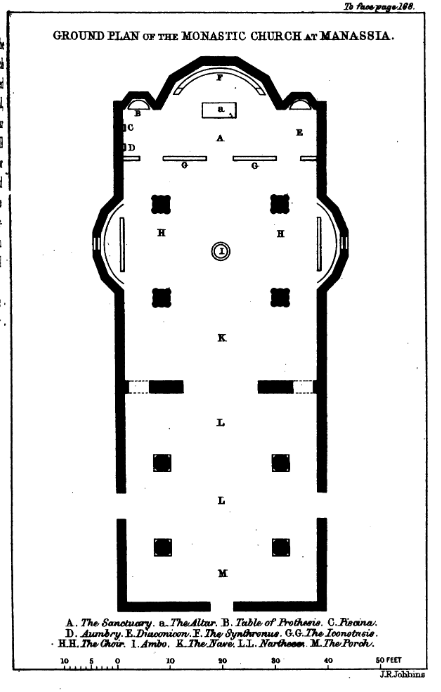SERVIA,
YOUNGEST MEMBER OF THE EUROPEAN FAMILY:
OR, A
RESIDENCE IN BELGRADE,
AND
TRAVELS IN THE HIGHLANDS AND WOODLANDS OF THE INTERIOR,
DURING THE YEARS 1843 AND 1844.
BY
ANDREW ARCHIBALD PATON, ESQ.
A Memoir of Kara Georg.
The Turkish conquest was followed by the gradual dispersion or disappearance of the native nobility of Servia, the last of whom, the Brankovitch, lived as despots in the castle of Semendria, up to the beginning of the eighteenth century; so that at this moment scarcely a single representative of the old stock is to be found.1
The nobility of Bosnia, occupying the middle region between the sphere of the Eastern and Western churches, were in a state of religious indifference, although nominally Catholic; and in order to preserve their lands and influence, accepted Islamism en masse; they and the Albanians being the only instances, in all the wars of the Moslems, of a European nobility embracing the Mohamedan faith in a body. Chance might have given the Bosniacs a leader of energy and military talents. In that case, these men, instead of now wearing turbans in their grim feudal castles, might, frizzed and perfumed, be waltzing in pumps; and Shakespear and Mozart might now be delighting the citizens assembled in the Theatre Royal Seraievo!
The period preceding the second siege of Vienna was the spring-tide of Islam conquest. After this event, in 1684, began the ebb. Hungary was lost to the Porte, and six years afterwards thirty-seven thousand Servian families emigrated into that kingdom; this first led the way to contact with the civilization of Germany: and in the attendance on the Austrian schools by the youth of the Servian nation during the eighteenth century, were sown the seeds of the now budding civilization of the principality.
Servia Proper, for a short time wrested from the Porte by the victories of Prince Eugene, again became a part of the dominions of the Sultan. But a turbulent militia overawed the government and tyrannized over the Rayahs. Pasvan Oglou and his bands at Widdin were, at the end of last century, in open revolt against the Porte. Other chiefs had followed his example; and for the first time the Divan thought of associating Christian Rayahs with the spahis, to put down these rebels, who had organized a system which savoured more of brigandage than of government. They frequently used the holiday dresses of the peasants as horse-cloths, interrupted the divine service of the Christian Rayahs, and gratified their licentious appetites unrestrained.
The Dahis, as these brigand-chiefs were called, resolved to anticipate the approaching struggle by a massacre of the most influential Christians. This atrocious massacre was carried out with indescribable horrors. In the dead of the night a party of Dahis Cavasses would surround a house, drive open gates and doors with sledge-hammers; the awakened and affrighted inmates would rush to the windows, and seeing the court-yard filled with armed men with dark lanterns, the shrieks of women and children were added to the confusion; and the unhappy father was often murdered with the half-naked females of his family clinging to his neck, but unable to save him. The rest of the population looked on with silent stupefaction: but Kara Georg, a peasant, born at Topola about the year 1767, getting timely information that his name was in the list of the doomed, fled into the woods, and gradually organized a formidable armed force.
His efforts were everywhere successful. In the name of the Porte he combated the Dahis, who had usurped local authority, in defiance of the Pasha of Belgrade. The Divan, little anticipating the ultimate issue of the struggle in Servia, was at first delighted at the success of Kara Georg; but soon saw with consternation that the rising of the Servian peasants grew into a formidable rebellion, and ordered the Pashas of Bosnia and Scodra to assemble all their disposable forces, and invade Servia. Between forty and fifty thousand Bosniacs burst into Servia on the west, in the spring of 1806, cutting to pieces all who refused to receive Turkish authority.
Kara Georg undauntedly met the storm; with amazing rapidity he marched into the west of Servia, cut up in detail several detached bodies of Turks, being here much favoured by the broken ground, and put to death several village-elders who had submitted to them. The Turks then retired to Shabatz; and Kara Georg at the head of only seven thousand foot and two thousand horse, in all nine thousand men, took up a position at an hour’s distance, and threw up trenches. The following is the account which Wuk Stephanovitch gives of this engagement.
“The Turks demanded the delivery of the Servian arms. The Servians answered, ‘Come and take them.’ On two successive mornings the Turks came out of Shabatz and stormed the breastwork which the Servians had thrown up, but without effect. They then sent this message to the Servians: ‘You have held good for two days; but we will try it again with all our force, and then see whether we give up the country to [295]the Drina, or whether we drive you to Semendria.’
“In the night before the decisive battle (August, 1806,) Kara Georg sent his cavalry round into a wood, with orders to fall on the enemy’s flank as soon as the first shot should be fired.
“To the infantry within the breastworks he gave orders that they should not fire until the Turks were so close that every shot might tell. By break of day the Seraskier with his whole army poured out of his camp at Shabatz, the bravest Beys of Bosnia bearing their banners in the van. The Servians waited patiently until they came close, and then opening fire did deadly execution. The standard-bearers fell, confusion ensued, and the Servian cavalry issuing from the wood at the same time that Kara Georg passed the breastworks at the head of the infantry, the defence was changed into an attack; and the rout of the Turks was complete. The Seraskier Kullin was killed, as well as Sinan Pasha, and several other chiefs. The rest of the Turkish army was cut up in the woods, and all the country as far as the Drina evacuated by them.”
The Porte saw with astonishment the total failure of its schemes for the re-conquest of Servia, resolved to temporize, and agreed to allow them a local and national government with a reduction of tribute; but previous to the ratification of the agreement withdrew its consent to the fortresses going into the hands of Christian Rayahs; on which Kara Georg resolved to seize Belgrade by stratagem.
Before daybreak on the 12th of December, 1806, a Greek Albanian named Konda, who had been in the Turkish service, and knew Belgrade well, but now fought in the Christian ranks, accompanied by six Servians, passed the ditch and palisades that surrounded the city of Belgrade, at a point between two posts so as not to be seen, and proceeding to one of the gates, fell upon the guard, which defended itself well. Four of the Servians were killed; but the Turks being at length overpowered, Konda and the two remaining Servians broke open the gate with an axe, on which a corps of Servians rushed in. The Turks being attracted to this point, Kara Georg passed the ditch at another place with a large force.
After a sanguinary engagement in the streets, and the conflagration of many houses, the windows of which served as embrasures to the Turks, victory declared for the Christians, and the Turks took refuge in the citadel.
The Servians, now in possession of the town, resolved to starve the Turks out of the fortress; and having occupied a flat island at the confluence of the Save and the Danube, were enabled to intercept their provisions; on which the Pasha capitulated and embarked for Widdin.
The succeeding years were passed in the vicissitudes of a guerilla warfare, neither party obtaining any marked success; and an auxiliary corps of Russians assisted in preventing the Turks from making the re-conquest of Servia.
Baron, subsequently Marshal Diebitch, on a confidential mission from the Russian government in Servia during the years 1810, 1811, writes as follows:2
“George Petrovitch, to whom the Turks have given the surname of Kara or Black, is an important character. His countenance shows a greatness of mind, which is not to be mistaken; and when we take into consideration the times, circumstances, and the impossibility of his having received an education, we must admit that he has a mind of a masculine and commanding order. The imputation of cruelty and bloodthirstiness appears to be unjust. When the country was without the shadow of a constitution, and when he commanded an unorganized and uncultivated nation, he was compelled to be severe; he dared not vacillate or relax his discipline: but now that there are courts of law, and legal forms, he hands every case over to the regular tribunals.”
“He has very little to say for himself, and is rude in his manners; but his judgments in civil affairs are promptly and soundly formed, and to great address he joins unwearied industry. As a soldier, there is but one opinion of his talents, bravery, and enduring firmness.”
Kara Georg was now a Russian lieutenant-general, and exercised an almost unlimited power in Servia; the revolution, after a struggle of eight years, appeared to be successful, but the momentous events then passing in Europe, completely altered the aspect of affairs. Russia in 1812, on the approach of the countless legions of Napoleon, precipitately concluded the treaty of Bucharest, the eighth article of which formally assured a separate administration to the Servians.
Next year, however, was fatal to Kara Georg. In 1813, the vigour of the Ottoman empire, undivided by exertions for the prosecution of the Russian war, was now concentrated on the re-subjugation of Servia. A general panic seemed to seize the nation; and Kara Georg and his companions in arms sought a retreat on the Austrian territory, and thence passed into Wallachia. In 1814, three hundred Christians were impaled at Belgrade by the Pasha, and every valley in Servia presented the spectacle of infuriated Turkish spahis, avenging on the Servians the blood, exile, and confiscation of the ten preceding years.
- The last of the Brankovitch line wrote a history of Servia; but the most valuable portion of the matter is to be found in Raitch, a subsequent historical writer. ↩︎
- The original is now in the possession of the Servian government, and I was permitted to peruse it; but although interesting, it is too long for insertion. ↩︎



